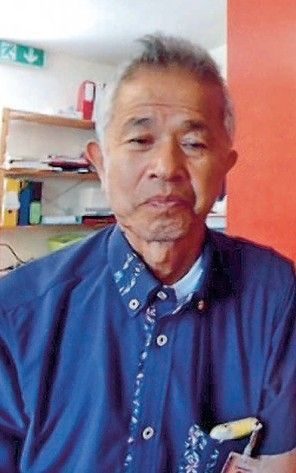
July 6, 2022 Ryukyu Shimpo
By Masatoshi Inafuku
On July 4, Takamatsu Gushiken of the Gamafuya, a group of volunteers who work to collect the remains of the war dead, spoke at a session of the United Nations Expert Mechanism on the Rights of Indigenous Peoples (EMRIP) held in Geneva, Switzerland. During the session, Gushiken said that the U.S. military bases in Okinawa infringe on the rights of the native population of Okinawa. “Because of the U.S.-Japan Security Treaty, Ryukyuan people’s right to autonomy is disregarded,” he said.
Gushiken explained that U.S.-Japan military drills are being conducted repeatedly due to concerns of a possible Taiwan emergency. He then declared his opposition to war and hopes for peace, saying, “The people of Ryukyu have no intention of attacking China from the Ryukyu Islands. It would only turn our islands into a battlefield.”
The EMRIP was established in 2008 after the adoption of the 2007 Declaration on the Rights of Indigenous Peoples. It is made up of seven individuals who provide specialist knowledge to the Human Rights Council.
On July 5, a side event was held to discuss the issue of the repatriation of Ryukyuan human remains that were taken from Okinawa by Kyoto University staff before World War II. Professor Yasukatsu Matsushima of Ryukoku University explained the history of the issue. Reports were shared of indigenous peoples overseas who successfully had important artifacts returned to them. Gushiken commented, “The U.N. Declaration supports the legitimacy of our claim, and this has given us courage. We want to be able to stand up and face both the Japanese the U.S. governments with courage and pride.”
Gushiken also expressed his concern that many indigenous peoples are unaware of their own rights. “I came to this EMRIP session hoping to receive help with the problems that I am facing. However, I have learned that many indigenous peoples are facing their own challenges. I hope that we can help each other. I also want to help people learn about their rights.”
(English translation by T&CT and Ellen Huntley)



